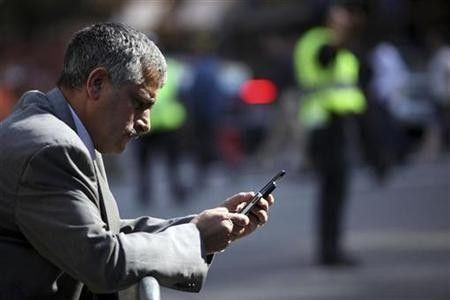An Australian iPhone App Designed to Help Lawyers Beat Regulators
An App Designed to Help Businesses During Dawn Raids Conducted by Regulators and The Police

Clayton Utz an Australian law firm has developed an app for Smartphones. The app is called "The Dawn Raid App". This app is specifically designed keeping in mind the companies facing dawn raids by tax officers, securities regulators, antitrust and the police.
According to the partner Michael Corrigan, more than a hundred businesses downloaded the app within a day of its launch. This software was developed because of the hide and seek, game played between companies and regulators worldwide since the law enforcement agencies take advantage of technology and get intern
Clayton Utz, an Australian law firm that has developed an app for Smartphones. The app is called "The Dawn Raid App". This app is specifically designed keeping in mind the companies facing dawn raids by tax officers, securities regulators, antitrust and the police.
According to the partner Michael Corrigan, more than a hundred businesses downloaded the app within a day of its launch. This software was developed because of the hide and seek, game played between companies and regulators worldwide since the law enforcement agencies took advantage of technology and get internal access to data during investigations.
Last year up to March 2014 triple number of raids was conducted, by the U.K.'s Serious Fraud Office. As a part of the antitrust investigation last month, London based law firm Pinsent Masons LLP and Chinese regulators raided offices of Daimler AG's Mercedes-Benz unit and Microsoft.
According to a law professor at the University of New South Wales, Justin O'Brien, when a regulator gives a call, the first thing a person must do is get legal advice before acting on impulse because the regulator would have come with the necessary preparations to deal with the situation.
The main purpose of the Dawn Raid App Developed by Clayton Utz law firm is to help lawyers choose on which regulator is raiding their office and it gives instructions on what to do and how they need to act. It is designed is such a way that the app can be used even if the internal computers are switched off.
The app will automatically send e-mails to staff informing them how to co-operate with the regulator. Clayton Utz's office will also receive the photographs of the warrants sent by the app. With the help of geo-location information it will identify the firms nearest office.
"If suddenly you find a collection of people in suits standing at your reception who want to march in and start imaging information, it's really not that useful to have a manual sitting around in someone's bottom drawer", Corrigan said. "Authorities are more sophisticated in terms of technology".
al access to data during investigations.
Last year up to March 2014 triple number of raids was conducted, by the UK's Serious Fraud Office. As a part of the antitrust investigation last month London based law firm Pinsent Masons LLP and Chinese regulators raided offices of Daimler AG's Mercedes-Benz unit and Microsoft.
According to a law professor at the University of New South Wales Justin O'Brien when a regulator gives a call the first thing a person must do is get legal advice before acting on impulse, because the regulator would have come with the necessary preparations to deal with the situation.
The main purpose of the Dawn Raid App Developed by Clayton Utz law firm is to help lawyers choose which regulator is raiding their office and it gives instructions on what to do and how they need to act. It is designed is such a way that the app can be used even if the internal computers are switched off.
The app will automatically send e-mails to staff informing them how to co-operate with the regulator. Clayton Utz's office will also receive the photographs of the warrants sent by the app. With the help of geo-location information it will identify the firms nearest office.
"If suddenly you find a collection of people in suits standing at your reception who want to march in and start imaging information, it's really not that useful to have a manual sitting around in someone's bottom drawer," Corrigan said. "Authorities are more sophisticated in terms of technology."





















